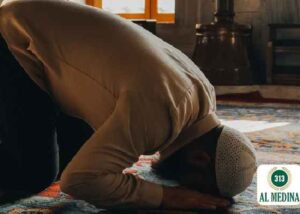Is it acceptable to say someone is in Jannah because he died in Ramadan, on Hajj or because he was pious?
Quran
Hadith
Islamic Text
No, it is not acceptable to say someone is in Jannah because he died in Ramadan, on Hajj or because he was pious. We are only permitted to speak about a person’s state in the afterlife if we have Quran or Hadith to support us. Otherwise we make generic statements but do not specify particular individuals.
فَلَمَّا تُوُفِّيَ غُسِّلَ وَكُفِّنَ فِي أَثْوَابِهِ، دَخَلَ رَسُولُ اللَّهِ صَلَّى اللهُ عَلَيْهِ وَسَلَّمَ، فَقُلْتُ: رَحْمَةُ اللَّهِ عَلَيْكَ أَبَا السَّائِبِ، فَشَهَادَتِي عَلَيْكَ لَقَدْ أَكْرَمَكَ اللَّهُ، فَقَالَ رَسُولُ اللَّهِ صَلَّى اللهُ عَلَيْهِ وَسَلَّمَ: «وَمَا يُدْرِيكِ أَنَّ اللَّهَ أَكْرَمَهُ» فَقُلْتُ: بِأَبِي أَنْتَ يَا رَسُولَ اللَّهِ، فَمَنْ يُكْرِمُهُ اللَّهُ؟ فَقَالَ رَسُولُ اللَّهِ صَلَّى اللهُ عَلَيْهِ وَسَلَّمَ: «أَمَّا هُوَ فَوَاللَّهِ لَقَدْ جَاءَهُ اليَقِينُ، وَاللَّهِ إِنِّي لَأَرْجُو لَهُ الخَيْرَ، وَوَاللَّهِ مَا أَدْرِي وَأَنَا رَسُولُ اللَّهِ مَاذَا يُفْعَلُ بِي» فَقَالَتْ: وَاللَّهِ لاَ أُزَكِّي بَعْدَهُ أَحَدًا أَبَدًا
When he (Uthman ibn Madh’un) died, he was washed and shrouded in his garments. The Messenger of Allah ﷺ entered, so I (Umm al-’Ala) said: ‘May Allah have Mercy upon you, Abu al-Sa’ib, for my testimony is that, indeed Allah (Most High) has honoured you. He ﷺ said: ‘How do you know that Allah (Most High) has honoured him.’ I said, ‘May my father be ransomed for you, O Messenger of Allah ﷺ, then does Allah (Most High) honour?’ So, the Messenger of Allah ﷺ said: ‘As for him indeed by Allah, certainty (death) has come to him. By Allah, I hope for goodness for him. By Allah, although I am the Messenger of Allah, I do not know what will happen to me’. She said, ‘By Allah, I will never praise anyone after him, ever.’ (Sahih al-Bukhari, 7003).
In the Sahih Hadith above we see that a Sahabiyyah praised a Sahaabi saying, ‘Allah (Most High) has honoured you.’ She was rebuked for this by the Holy Prophet ﷺ. She (May Allah Most High be pleased with her) did not go as for as saying he is in Jannah, yet she was rebuked.
So, if it is not permitted for a Sahabi to say something short of ‘he is in Jannah’ about a Sahabi. How can it be permitted to go beyond this for someone who is not of such a rank? Although many people do say such things, it is certainly impermissible.
وَلَا نُنْزِلُ أَحَدًا مِنْهُمْ جَنَّةً وَلَا نَارًا ولا نشهد عليهم بكفر ولا بشرك وَلَا بِنِفَاقٍ مَا لَمْ يَظْهَرْ مِنْهُمْ شَيْءٌ مِنْ ذَلِكَ وَنَذَرُ سَرَائِرَهُمْ إِلَى اللَّهِ تَعَالَى. (بيان عقيدة أهل السنة والجماعة)
And we do not designate anyone to Paradise or to Hellfire. Nor do we ascribe to them Kufr (disbelief), idolatry or hypocrisy, so long as none of that becomes apparent from them. Rather we resign their true state to Allah, Most High. (Imam Abu Jafar al-Tahaawi, Aqeedah Tahawiyyah).
When Quran and Hadith specify individuals for Heaven or Hell. Then we will specify too. For example, we will say Abu Lahab is going to Hell. We will say Sayidina Abu Bakr (May Allah Most High be pleased with him) is going to Heaven. This is because the Quran specifically mentions Abu Lahab is going to Hell. And Hadith specifically mentions Sayidina Abu Bakr (May Allah Most High be pleased with him) is going to Heaven.
Only Allah Most High knows who will or will not enter paradise. We cannot comment upon it without evidence from Quran and Hadith. The norm with Quran and Hadith is to make generic statements and not specify individuals. In such cases we cannot specify individuals. Thus, we cannot say such a person died whilst on Hajj, so he is going to Jannah. Rather we quote the relevant Hadith and hope it applies to him.
لا يجوز لأحدٍ أن يَشهد بكون أحدٍ من أهل الجنة أو من أهل النار إلا مَن جاء النصُّ بأنه من أهل الجنة، ولكن مَن رأيناه مشتغلًا بالأعمال الصالحة نرجو له السعادةَ من غير أن نَقطعَ، ومَن رأيناه مشتغلًا بالأعمال القبيحة نَخافُ عليه الشقاوةَ من غير أن نَقطعَ. (المفاتيح في شرح المصابيح)
It is not permissible to definitively state that anyone is from the people of Paradise or from the people of Hellfire. Except for what has been mentioned in text (Quran or Hadith), stating specifically that he is from the people of Paradise. However, if we see that someone is occupied with good works, we will hope for felicity for him without definitively stating it. And if we see someone occupied with vile deeds, we will fear misery for him without definitively stating it. (Imam al-Mudhiri al-Shirazi, al-Mafateeh).
أَلَا تَرَى أَنَّهُ لَا يَجُوزُ أَنْ يُقْطَعَ بِكَوْنِ أَحَدٍ مِنْ أَهْلِ الْجَنَّةِ أَوْ مِنْ أَهْلِ النَّارِ، وَإِنْ شَهِدَ لَهُ جَمَاعَةٌ كَثِيرَةٌ، بَلْ يُرْجَى لِمَنْ شُهِدَ لَهُ بِالْخَيْرِ، وَيُخَافُ النَّارُ لِمَنْ شَهِدَ لَهُ جَمَاعَةٌ بِالشَّرِّ. (مرقاة المفاتيح شرح مشكاة المصابيح)
Do you not see that it is not permissible to definitively (decree) anyone (as being) from the people of Paradise or from the people of Hellfire, even if a large congregation testifies for him. Rather it is hoped that he will receive good. And it is feared for the one, regarding whom a large congregation has testified (that his deeds were) evil. (Imam Ali al-Qari, Mirqaat al-Mafateeh).
We see in the Nusoos (texts) above that it is permitted to mention a person’s ostensible good qualities. However, we cannot cross the line to making judgments that are the right of Allah (Most High) alone. Imam Ahmad Zarooq went even further by considering such statements lies.
ثم الكذب باعتبار التحكم على الله بالحتم بجنته أو ناره لأحد، وقد قيل: إن هذا كفر. (النصيحة الكافية لمن خصه الله بالعافية)
Next is a lie from the perspective of dictating upon Allah (Most High). (This is done by) Definitively stating someone is in Jannah or the fire. Indeed it has been said that this is Kufr. (Imam Ahmad Zarooq, al-Nasihah al-Kafiyah).
Imam Zarooq made strong statements in the Nass above. However, he is certainly not alone in this. Rather many Hanafi scholars mentioned that it is Kufr to believe someone (other than the Prophets) who claims to know the unseen.
قَلَ فِي الْإِمْدَادِ عَنْ شَرْحِ الْمَنْظُومَةِ لِابْنِ الشِّحْنَةِ أَنَّ الْمُرَادَ بِالْكَاهِنِ وَالْعَرَّافِ فِي الْحَدِيثِ مَنْ يُخْبِرُ بِالْغَيْبِ أَوْ يَدَّعِي مَعْرِفَتَهُ فَمَا كَانَ هَذَا سَبِيلَهُ لَا يَجُوزُ، وَيَكُونُ تَصْدِيقُهُ كُفْرًا. (منحة الخالق)
It was reported in al-Imdaad, from the commentary of Al-Madhumah of Ibn al-Shihnah that the meaning of ‘the soothsayer and the mystic’ in the Hadith is anyone who speaks about matters of the unseen (Ghayb) or claims knowledge of it. Therefore, such practices are not permitted. Believing such things is Kufr (unbelief). (Imam Ibn Abideen, Minhatu al-Khaliq).
من يخبر بالغيب أو من يدعي معرفته فما كان هذا سبيله لا يجوز ويكون تصديقه كفرا. (حاشية الطحطاوي على مراقي الفلاح شرح نور الإيضاح)
Whomever informs of matters of the unseen, or claims knowledge of them, then if this (soothsaying) is his means it is not permitted. Believing such things is Kufr (unbelief). (Imam al-Tahtawi, Haashiyah ala Maraaqi al-Falah).
Considering the above Nusoos, it is evident that speaking about matters of the unseen without explicit evidence is not permitted. Unfortunately, such practices are widespread. The fact that so called ‘learned people’ fall into this error exacerbates the problem. This is why Muslims must seek guidance from Quran, Hadith and classical scholars. They should not overly rely upon contemporary scholars.
If a person passes away whilst fasting or on Hajj, we will see this as a blessing. However, we will not say he is going to Jannah. Matters that are known to Allah (Most High) alone, like inward piety, rank, and status with Allah (Most High) are from the Ghayb (unseen). Thus, we are not permitted to speak of them without clear evidence from Quran and Hadith.
And Allah Most High Knows Best.
-Answered by Shaykh Noorud-deen Rashid (28.09.2022)
-With special thanks to Sidi Yusuf Asghar for assisting with Nusoos translation.
See also:
Do Awliya know the unseen?
Hadith about the person who dies whilst fasting goes to Jannah, authentic?
If you die in Ramadan are you guaranteed Jannah?
See also video:






